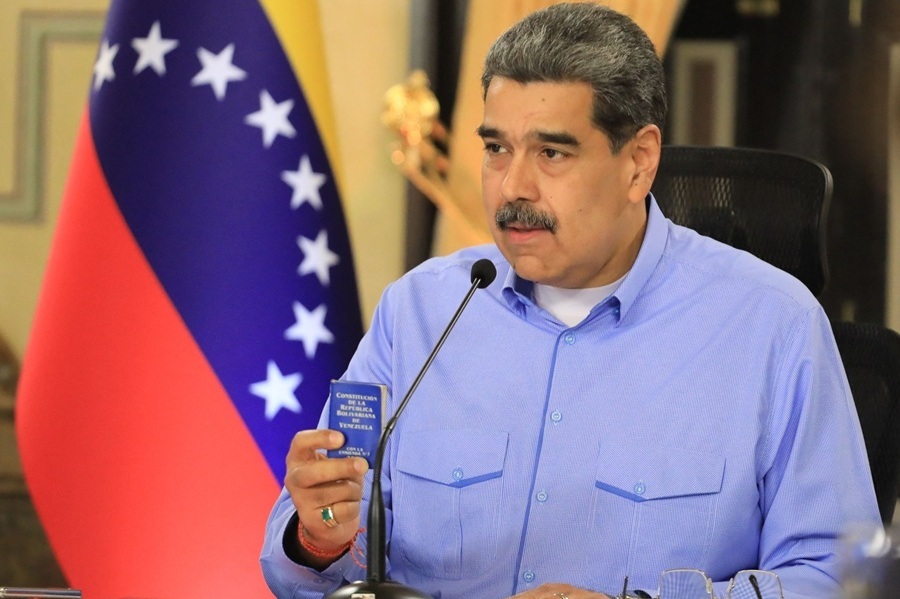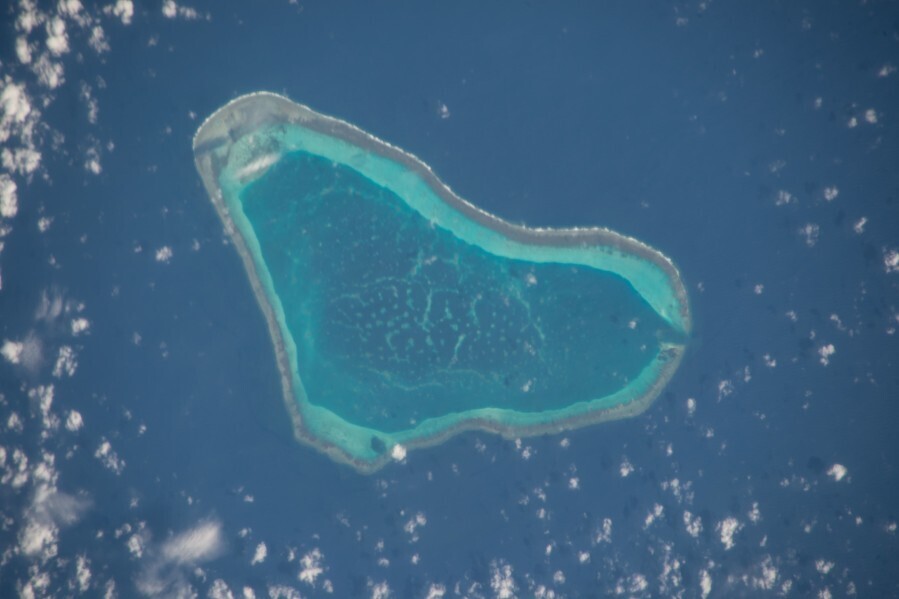[South China Sea] Pandemic and US-Japan support reasons for Indonesia's strong stance on SCS
In late May, Indonesia wrote to the UN to register its objection to China's nine-dash line in the South China Sea (SCS), saying that there is no legal basis for China's claim. China academic Long Yan notes that this is quite an unexpected move from the relatively quiet Indonesia, who is not a main player in the SCS dispute. It remains to be seen if external support from countries such as Japan and the US will boost Indonesia's confidence in protecting its rights and interests in the SCS, despite its strong economic ties with China.
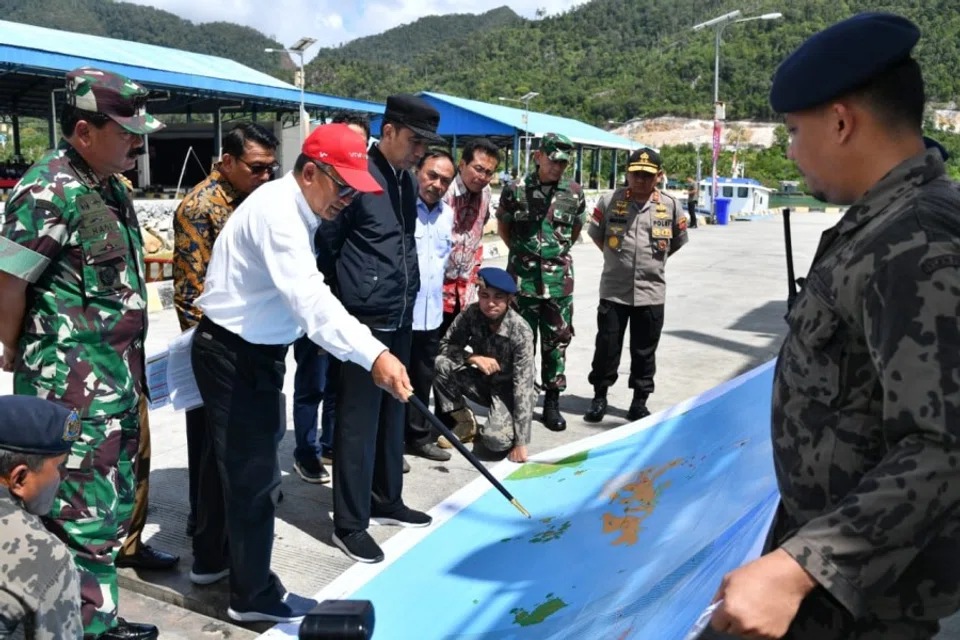
On 26 May, Indonesia sent a letter to the United Nations, saying that China's "nine-dash line" in the South China Sea (SCS) lacks an international legal basis and goes against the 1982 United Nations Convention on the Law of the Sea (UNCLOS). Citing the arbitral tribunal ruling released by the Permanent Court of Arbitration in The Hague in 2016, Indonesia said there was no legal basis for China's claim to some 90% of the contested waters, which was rejected by the tribunal that found in favour of the Philippines instead. Indonesia stressed that it has "consistently called for the full compliance toward international law", and that it "is not bound by any claims made in contravention to international law".
Many were surprised by the move. Compared to other Southeast Asian countries, Indonesia has been relatively low-key with regards to SCS issues, only raising a clear objection at China's fishing operations in the North Natuna Sea. In fact, Indonesia is not a main player in the SCS dispute.
Both sides are at a very interesting stage where the situation is brewing, but has not yet boiled over.
Indonesia initially less of a player in SCS dispute
The first point has to do with its unique geographical position. Indonesia is located southeast of the main disputed waters of the SCS, separated from it by Malaysia and Brunei. Its Exclusive Economic Zone (EEZ) as defined under UNCLOS does not clash with China's "nine-dash line" as much as other countries such as Vietnam and Malaysia, which means it will not be the centre of the SCS dispute.
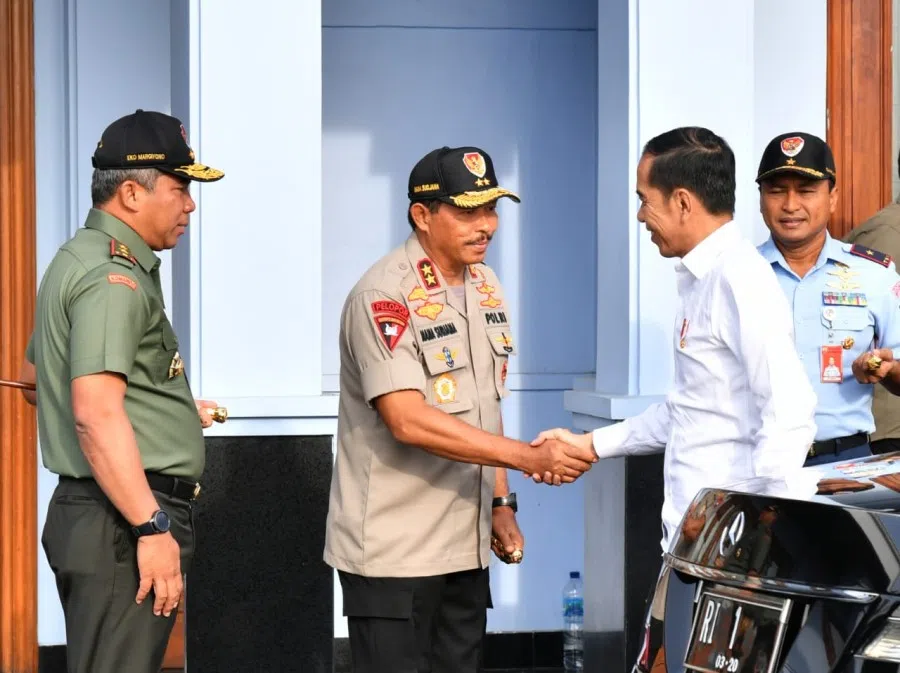
Second, China has never officially raised a claim over the Natuna Islands; the so-called "dispute" is because the "nine-dash line" overlaps with Indonesia's EEZ off the Natuna Islands, now known as the North Natuna Sea. China's foreign ministry spokespersons have also reiterated that there is no sovereignty dispute between China and Indonesia, only a difference in views about their rights in some parts of the SCS. Both sides are at a very interesting stage where the situation is brewing, but has not yet boiled over.
Jokowi also said publicly several times that Chinese investments and protection of sovereignty are not the same thing, and there is no room for negotiation when it comes to sovereignty.
Third, China and Indonesia share common interests. Large-scale, China-invested infrastructure projects have brought enormous economic benefits to Indonesia. As Indonesia's third-largest investor, China's direct investments in Indonesia in the first half of 2019 was just under US$2.3 billion, nearly equal to the total for the whole of 2018. At the same time, Indonesia and China are gradually becoming important partners in China's Belt and Road Initiative (BRI) and Indonesia's Global Maritime Fulcrum (GMF). During the Second Belt and Road Forum for International Cooperation in April 2019, China and Indonesia signed key documents on regional comprehensive economic corridors, indicating new highs in friendly bilateral relations.
Admittedly, given current international relations, Indonesia's "sudden attack" is indeed somewhat baffling. However, on reflection, the letter is not without merit - it is based on the following three points.
Indonesia protective of its interests in North Natuna Sea
First, the dispute between China and Indonesia over the North Natuna Sea has never gone away. When it comes to the overlapping claims in the disputed waters, the Indonesian navy has intervened several times to expel Chinese fishing boats escorted by the Chinese coast guard and navy. In January this year, both sides crossed swords over these incidents.
... Indonesia has announced a defence cut of nearly US$588 million, which means an inevitable reduction in maritime patrols, making Indonesia feel less secure about protecting its maritime rights.
At the time, Indonesia raised a strong diplomatic protest with China. Indonesian President Joko Widodo met with the navy and coast guard in the North Natuna Sea, and asked them to ramp up patrols in those waters. Jokowi also said publicly several times that Chinese investments and protection of sovereignty are not the same thing, and there is no room for negotiation when it comes to sovereignty. All this shows how serious Indonesia is about its sovereignty claims over its exclusive economic zone in the North Natuna Sea.
Second, the double pressure of the coronavirus and the SCS tensions have added to Indonesia's sense of insecurity. For one thing, with the global spread of the coronavirus, Southeast Asian economies are experiencing an unprecedented economic impact, with many countries cutting defence spending to make up for the financial gap. So far, Indonesia has announced a defence cut of nearly US$588 million, which means an inevitable reduction in maritime patrols, making Indonesia feel less secure about protecting its maritime rights.
... the US has recently been carrying out frequent activities in the SCS and strongly promoting the "China threat", making the situation in the SCS more volatile.
Also, the SCS sovereignty disputes between China and other countries such as Vietnam and the Philippines are tense and ongoing. Furthermore, the US has recently been carrying out frequent activities in the SCS and strongly promoting the "China threat", making the situation in the SCS more volatile. As one of the Southeast Asian countries involved in disputes with China over maritime rights and interests in the SCS, it cannot just stand to one side as an observer. It is anxious to reiterate its stance, increase its presence and assert its sovereignty rights in the SCS.
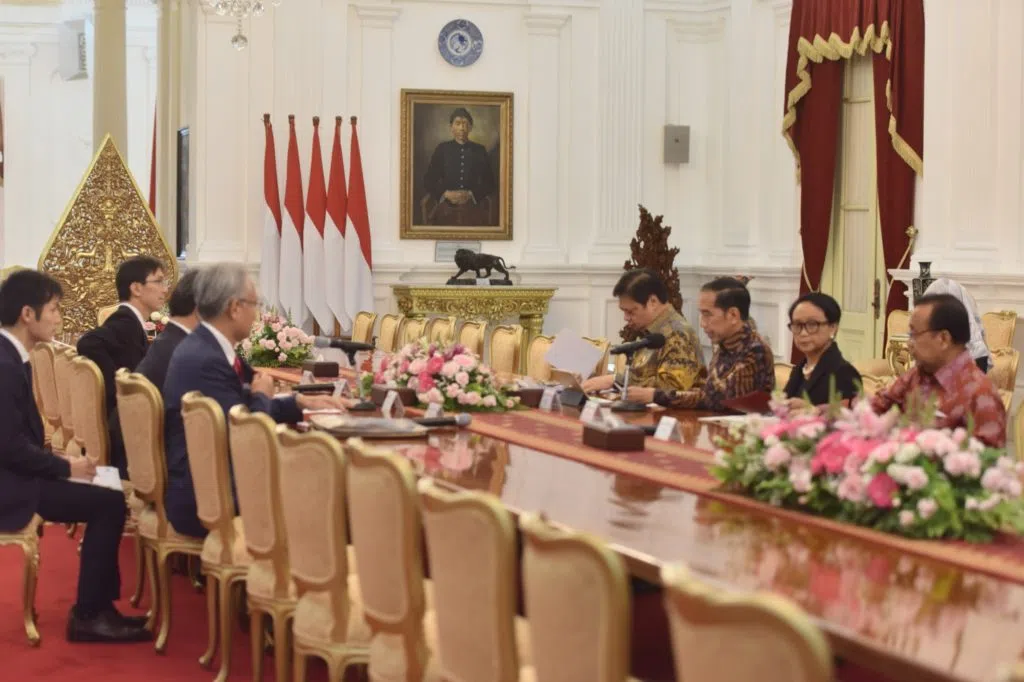
Third, Indonesia's claims in the SCS have been boosted by economic support from countries outside of the region. At the moment, Indonesia is trying to get Japan to continue increasing its investments in the Natuna Islands, and is actively trying to convince the US to join in - its efforts have met with positive responses. Indonesia's Coordinating Minister for Maritime and Investment Affairs, Luhut Binsar Pandjaitan, said in January that Japan is planning to increase its investments in the Natuna Islands, while the US also intends to work with Japan to help Indonesia drive the development of the Natuna Islands.
Economic exchanges with major countries outside the region, especially when it comes to investments in the disputed Natuna Islands, has lessened Indonesia's concerns about having to maintain friendly relations with China for the sake of the economy, boosting Indonesia's confidence in maintaining its claims.
It has been over 30 years since China and Indonesia resumed diplomatic relations. During that time, political, economic, and cultural exchanges have become more frequent, with broader and deeper cooperation. The BRI is in full swing, and as a key participant in the 21st Century Maritime Silk Road, Indonesia's overall strategic partnership with China is on firm ground. Both sides should take this rare opportunity to benefit the people of both countries and promote the healthy growth of bilateral relations, to build a peaceful and stable environment in the SCS and all of Asia.
Editor's note:
In recent weeks, the US and China have upped the ante in the SCS dispute. China conducted military drills in the waters near the Paracel islands (what it calls Xisha Islands) saying it was well within its rights to do so. A US Department of Defense statement said: "Conducting military exercises over disputed territory in the SCS is counterproductive to efforts at easing tensions and maintaining stability. The PRC's actions will further destabilise the situation in the SCS. Such exercises also violate PRC commitments under the 2002 Declaration on the Conduct of Parties in the SCS to avoid activities that would complicate or escalate disputes and affect peace and stability."
Vietnam, a claimant state in the SCS dispute, also reacted with consternation. Its Ministry of Foreign Affairs spokesperson Le Thi Thu Hang, said, "The drill carried out by China around the Paracel Islands violated Viet Nam's sovereignty over the Paracel Islands, contravenes the spirit of the Declaration of Conduct of the Parties in the South China Sea (DOC), complicates the situation and is not conducive to current negotiation between China and ASEAN on the Code of Conduct in the South China Sea (COC) as well as the maintenance of peace, stability and cooperation in the SCS."
Vietnam is also the current chair of ASEAN. In the recent ASEAN Summit Chairman's Statement on 26 June, the ASEAN states reaffirmed that "the 1982 UNCLOS is the basis for determining maritime entitlements, sovereign rights, jurisdiction and legitimate interests over maritime zones, and the 1982 UNCLOS sets out the legal framework within which all activities in the oceans and seas must be carried out".
In a video statement, Philippine Foreign Secretary Teodoro L. Locsin Jr. said: "These exercises are taking place in waters off Xisha Islands - the Paracels - over which Vietnam claims sovereignty. Should the exercises spill over to Philippine territory, then China is forewarned that it will be met with the severest response, diplomatic and whatever else is appropriate."
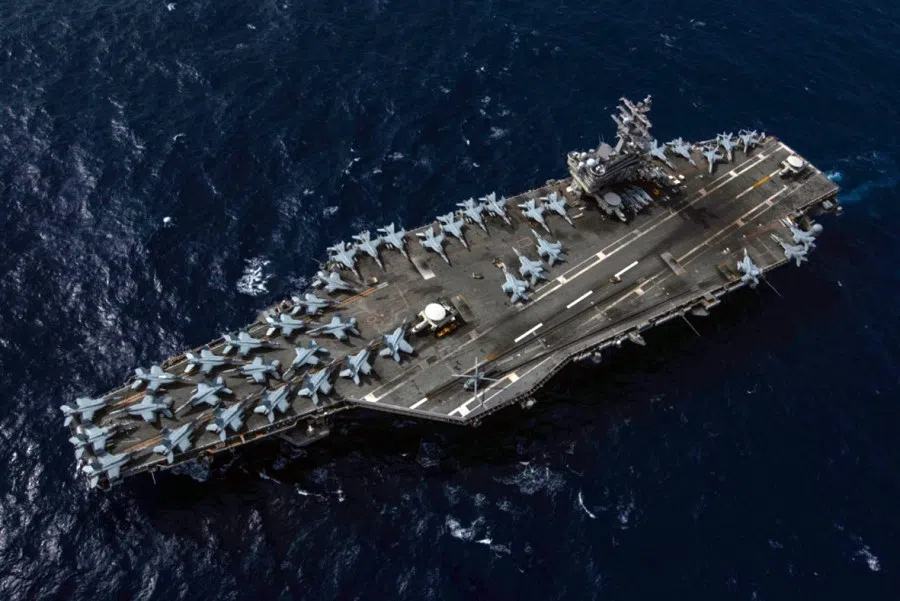
At around the same time, the US conducted a fresh round of Navy exercises on 4 July involving two aircraft carriers, the USS Nimitz and the USS Ronald Reagan. A statement from the US Navy said: "The Nimitz Carrier Strike Force celebrated Independence Day with unmatched sea power while deployed to the SCS conducting dual carrier operations and exercises in support of a free and open Indo-Pacific." Chinese foreign ministry spokesperson Zhao Lijian has deemed this a provocation, saying on 6 July that it is "completely out of ulterior motives" that the US "flexes its muscles by purposely sending powerful military force to the relevant waters". He went on to say that the US seeks to "drive a wedge between regional countries, promote militarisation of the SCS and undermine peace and stability in the region".
Military affairs academic Wang Yunfei said in an essay in Toutiao (《今日头条》) that the US carrier strike force came calling on its own, giving the Chinese forces just the target training practice they were looking for. In addition, in August, the Chinese Navy may embark on another exercise in the SCS.
Meanwhile, China has also announced in recent days that its reserve military forces will now be under the charge of the Communist Party of China (CPC) Central Committee and the Central Military Commission. It is believed that this move is to allow the PLA to be more agile in tackling potential large-scale conflicts that may arise in various hotspots.
Philippine Foreign Secretary Teodoro L. Locsin Jr. said in a statement on 12 July, the anniversary of the arbitral tribunal ruling: "The Tribunal ruled that certain actions within the Philippines' EEZ violated the Philippines' sovereign rights and were thus unlawful; that large-scale reclamation and construction of artificial islands caused severe environmental harm in violation of international conventions; that the large-scale harvesting of endangered marine species damaged the marine ecosystem; and that actions taken since the commencement of the arbitration had aggravated the disputes."


